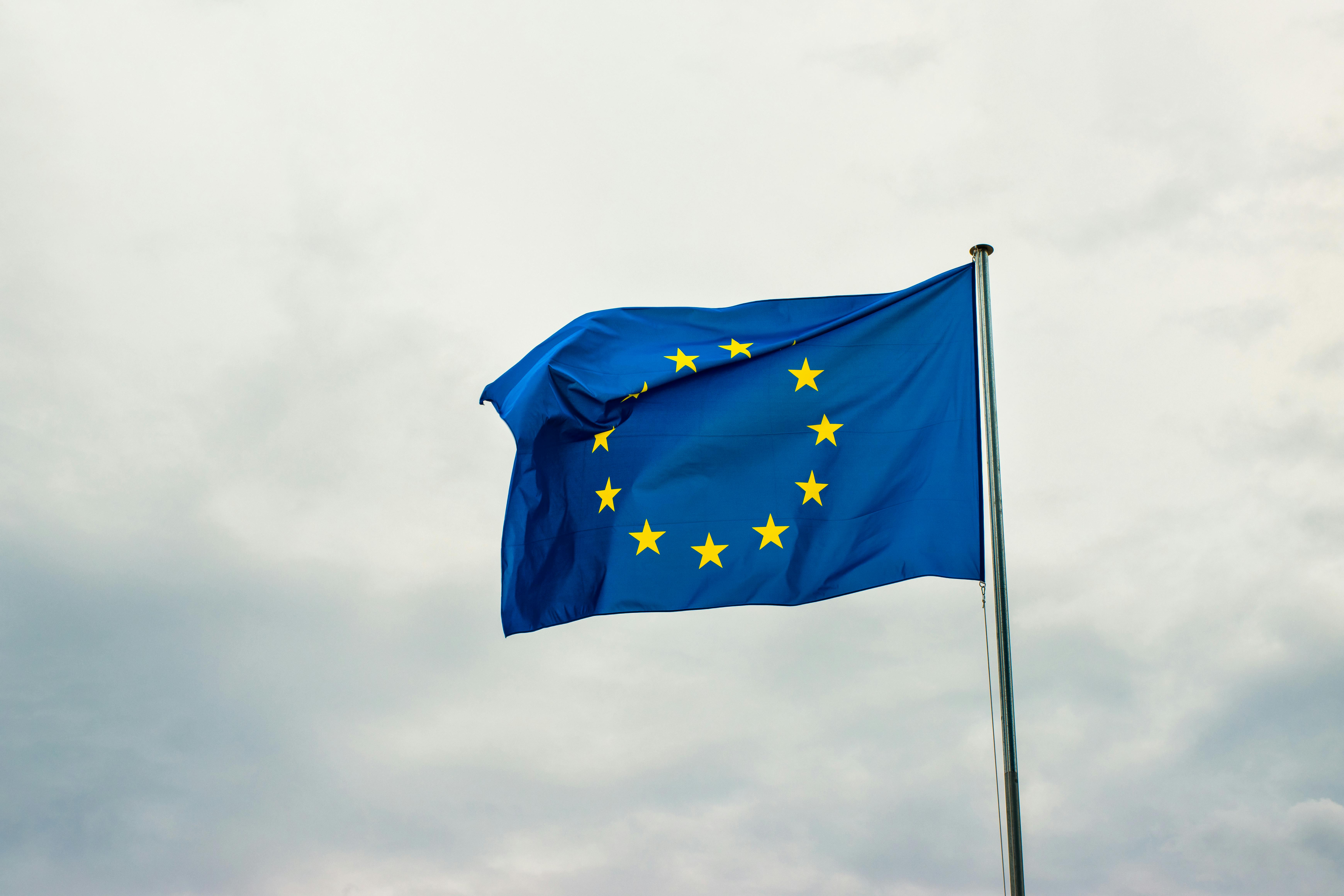
AI Regulation in Europe: Challenges and Opportunities
Discover how the European AI Act is revolutionizing the AI landscape, its economic impacts, and the balance between innovation and rights protection.
Artificial intelligence is rapidly transforming our world, while regulators attempt to keep pace. At the heart of this movement, Europe has taken the lead with the AI Act, the world's first comprehensive legislation specifically dedicated to AI. This regulatory framework inspires as much hope as debate.
Between fundamental rights protection and innovation ambitions, how does Europe navigate these complex waters? What consequences for companies like yours? Let's dive into this regulatory revolution that redefines the rules of the game.
The AI Act: First Global Framework for AI
The European Union confirms its pioneering role in digital regulation. After GDPR which transformed data protection, the AI Act adopted in 2024 marks a new decisive step.
A Risk-Based Approach
The originality of the AI Act lies in its risk-level assessment method:
- Unacceptable risk: Prohibited systems (behavioral manipulation, social scoring)
- High risk: Applications in sensitive sectors (recruitment, credit, justice) subject to strict obligations
- Limited risk: Transparency requirements (chatbots, deepfakes)
- Minimal risk: Low-impact applications with few constraints
This gradual approach allows adapting regulatory requirements to each technology's potential impact.
General-purpose AI systems, like ChatGPT, benefit from a specific framework recognizing their versatility while imposing appropriate safeguards.
Guiding Principles and European Values
The AI Act embodies a European vision of AI centered on several fundamental principles. Human control is placed at the heart of the system, affirming that humans must remain masters of important decisions. Transparency guarantees the right to know when interacting with AI. Technical robustness aims to ensure system safety and reliability. Finally, privacy respect reinforces personal data protection already established by GDPR.
These principles reflect the European will to create "trustworthy AI" respecting human dignity and preventing discrimination.
Economic Impacts of European Regulation
Implementing this regulation represents both a challenge and an economic opportunity.
Compliance Costs for Companies
Studies forecast substantial investments:
- Costs estimated at several tens of billions of euros in the first years
- Mobilization of approximately 20 billion euros annually in public and private investments
- Charges related to documentation, risk assessment, and certification
For SMEs and startups, these requirements may seem particularly heavy without adequate support measures.
Long-term Benefits and Opportunities
Despite these constraints, regulation also offers strategic advantages. CE marking facilitates access to the vast European market of 450 million consumers. Companies also benefit from increased user confidence in technologies meeting these standards. A competitive advantage emerges for organizations integrating ethics from the design phase of their solutions.
A McKinsey study suggests that companies investing early in compliance will benefit from a significant competitive advantage by 2027.
The Debate Between Innovation and Regulation
European regulation sparks contrasting reactions among experts and sector players.
Sector Criticisms and Concerns
Several voices rise against what they perceive as innovation barriers. Startups like Mistral AI warn about the risk of stifling European innovation. They particularly point to potentially prohibitive administrative burdens for smaller players and extended development delays facing less constrained international competition.
A survey reveals that 62% of European technology companies fear a global competitive disadvantage.
Arguments in Favor of Regulation
AI Act defenders, including Margrethe Vestager and the AI expert group, highlight several solid arguments. They emphasize the necessary protection of fundamental rights facing a profoundly transformative technology. They also value the legal security provided in a previously unregulated domain. Finally, they consider ethics as a differentiating advantage facing American and Chinese models.
Surveys show that 31% of Swiss people worry about AI's impact on employment, and about 50% express reservations about its use in the private sphere. The European response therefore also addresses citizen concerns.
The Global AI Race
European regulation fits into an international context of intense competition.
International Comparison of Approaches
Three dominant models emerge on the global scene. The United States favors an innovation-friendly approach with the "Stargate" project, a colossal $500 billion investment over 4 years. China opts for centralized state control combining massive investments and surveillance systems. Europe chooses a middle path with its ethical regulation associated with more targeted investments.
In France, Emmanuel Macron announced a 109 billion euro investment plan, including:
- 20 billion for data centers in Cambrai
- A partnership with the UAE potentially reaching 50 billion euros
- The goal of training 100,000 AI professionals annually
This diversity of approaches reflects deep cultural differences in the relationship to technology.
Toward Globalization of European Standards?
GDPR's recent history suggests that European norms can impose themselves globally. This phenomenon, sometimes called the "Brussels Effect," shows that access to the European market incites international companies to adopt its standards. Global companies often align their practices with the strictest regulations to simplify their compliance. Through this normative influence, the EU could succeed in exporting its ethical AI model beyond its borders.
Some experts predict that the AI Act could become a model for other jurisdictions, thus creating a first-mover advantage for European companies.
Future Perspectives and Adaptability
Facing rapid AI technology evolution, regulatory framework sustainability is a crucial issue.
Regulatory Framework Update Mechanisms
The AI Act integrates an essential evolutionary dimension facing technological advances' speed. The text provides for delegated acts allowing adaptations without requiring a complete legislative process. Expert committees are tasked with continuously evaluating technological developments and their implications. Periodic reviews are also scheduled to maintain regulatory framework relevance over time.
This flexibility is essential to prevent regulation from becoming obsolete facing technological advances.
Advice for Companies Facing the AI Act
For organizations developing or using AI, several strategies are essential in this new regulatory landscape. Anticipation is crucial to integrate requirements that will become mandatory now. Rigorous documentation allows implementing algorithmic decision traceability processes. The "ethics by design" approach invites considering ethical aspects from system conception. Finally, active regulatory monitoring is necessary to follow AI Act developments and interpretations.
Proactive companies will transform this regulatory constraint into strategic advantage.
At Novatix, we support our clients in this transition with proven methods for evaluating and ensuring AI system compliance.
Case Studies: Regulation in Action
Let's examine how the AI Act concretely impacts different sectors.
The Financial Sector Facing New Standards
Financial institutions already massively use AI for credit risk assessment and must adapt to new requirements. CleverBank, for example, had to modify its scoring algorithms to guarantee decision explicability. Credit analysis systems are now subject to regular technical audits to verify their compliance. Moreover, human recourse processes have been implemented to allow clients to contest automated decisions.
These measures initially slowed development but reinforced client confidence.
Public Services and Citizen Protection
Problematic cases have justified the need for regulation in the public sphere. Social aid attribution through algorithms has sometimes led to involuntary but real discriminations. School assignment systems like Affelnet have raised important questions of equity and transparency. Facial recognition use in public space has also posed serious problems regarding individual freedoms and surveillance.
The AI Act now imposes increased transparency and systematic human control in these sensitive domains.
Balancing Innovation and Protection: The European Challenge
The fundamental equation Europe attempts to solve is complex.
The European Bet Facing Tech Giants
Europe faces a complex strategic dilemma. It lags infrastructurally with less computing capacity and data access than the United States or China. However, it benefits from a significant normative advance by creating the first comprehensive regulatory framework, thus establishing a global reference. Europe can also count on its scientific excellence with a strong concentration of talents in fundamental AI research.
This unique situation positions Europe as a "regulator-innovator" seeking to define conditions for responsible AI rather than a simple power race.
Algorithmic Pluralism and Digital Sovereignty
Beyond technical regulation, Europe defends a distinctive societal vision. It seeks to preserve cultural diversity facing algorithmic uniformization risks. It also promotes digital power decentralization to counter technological monopolies. Finally, it aims to strengthen its strategic autonomy in technologies considered critical for its future.
These dimensions broaden the debate beyond immediate economic considerations to question the digital society model we wish to build.
The AI Act thus represents much more than simple technical regulation: it's the expression of a European vision of technology serving humanity.
Europe finds itself at a crossroads, between innovation ambition and protection necessity. The AI Act, despite its imperfections, offers a pioneering framework that could durably influence global AI development.
For companies like yours, this regulation represents a short-term constraint but also the opportunity to build more robust, more ethical, and ultimately more sustainable AI systems.
At Novatix, we are convinced that the future belongs to organizations that will transform these regulatory requirements into competitive advantage. Our AI compliance expertise accompanies you on this journey toward responsible and efficient artificial intelligence.
Do you want to evaluate the AI Act's impact on your AI projects? Contact our experts for a personalized diagnosis.
Written by

Antonin Blaise
AI Consultant